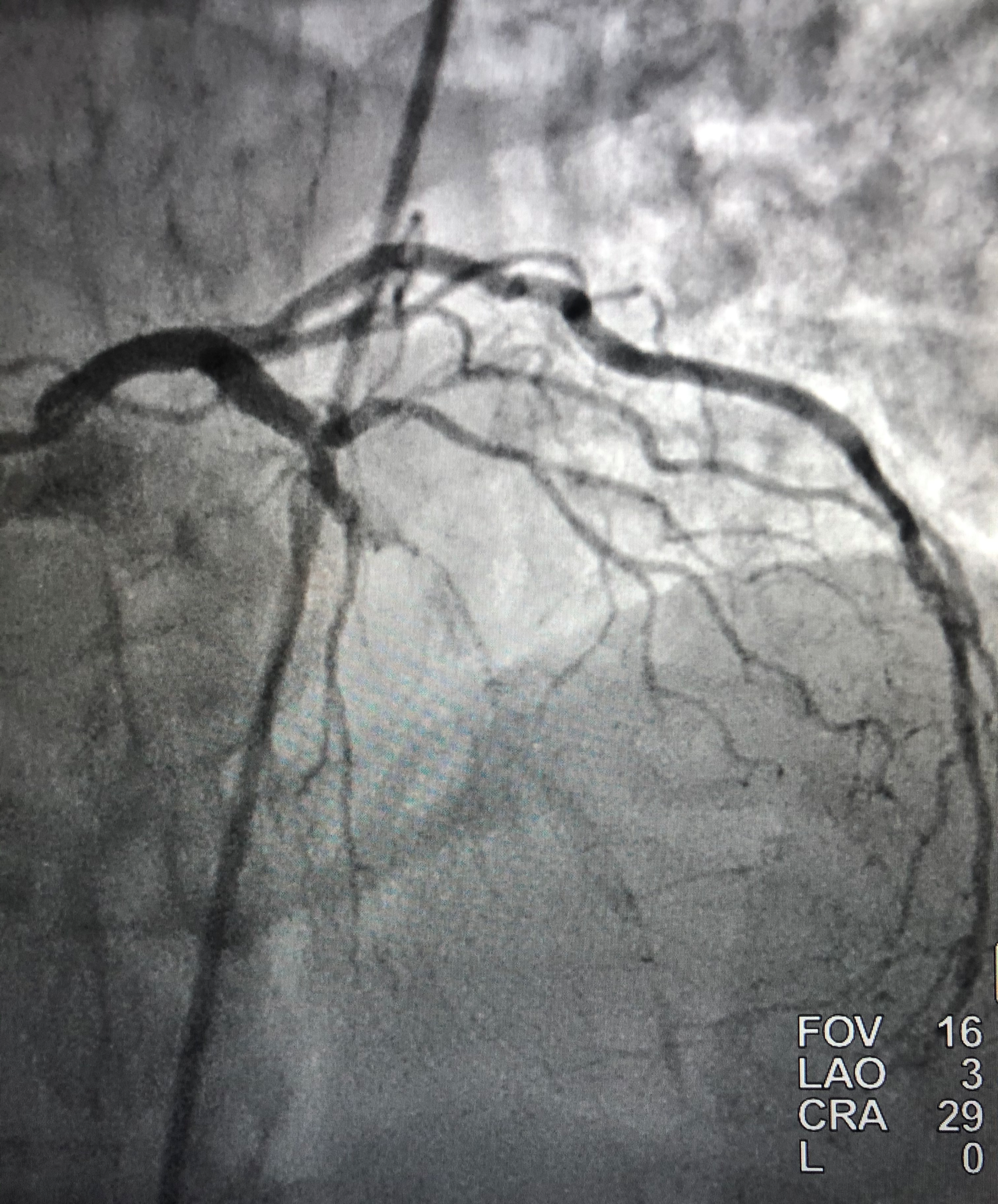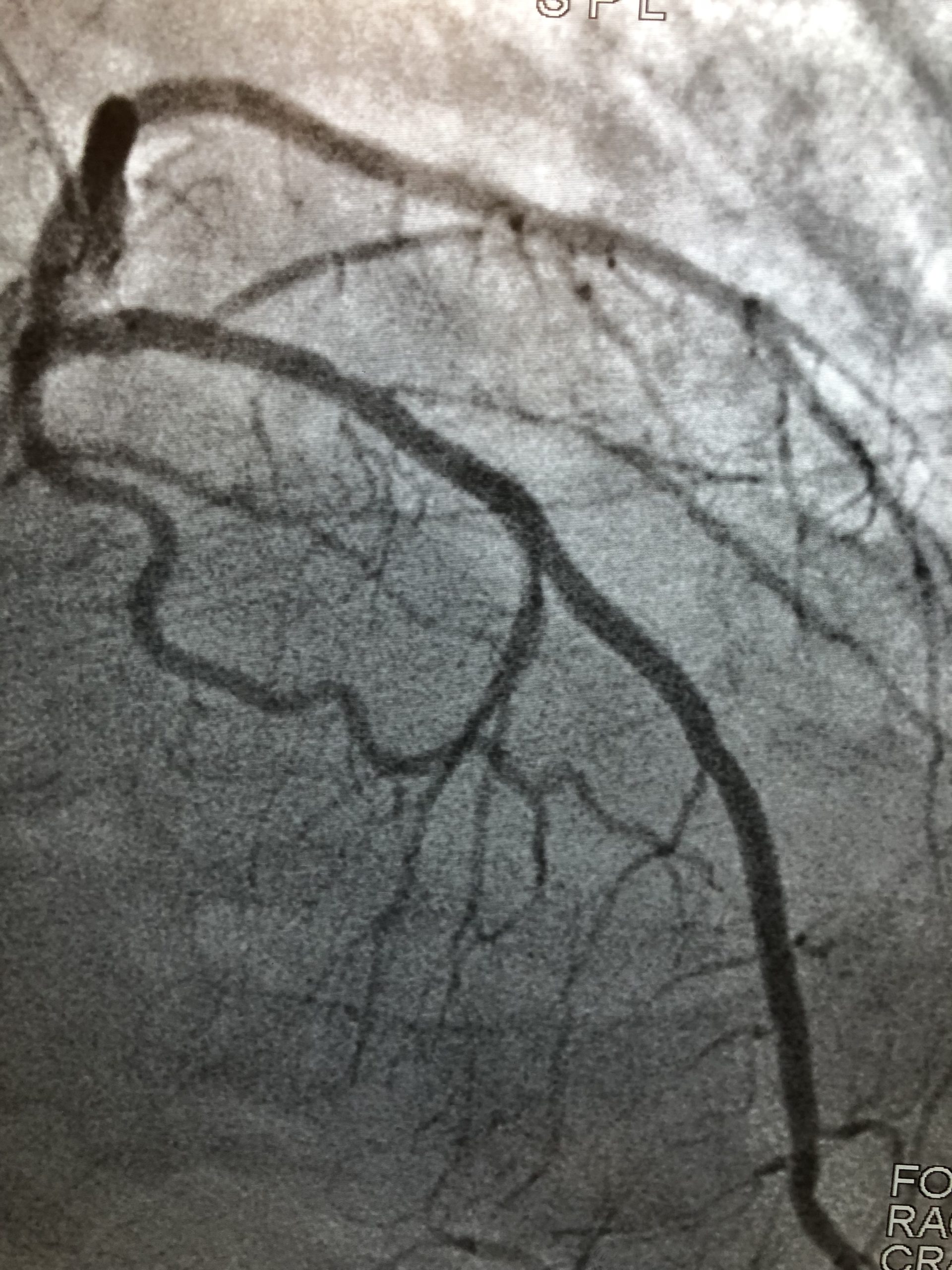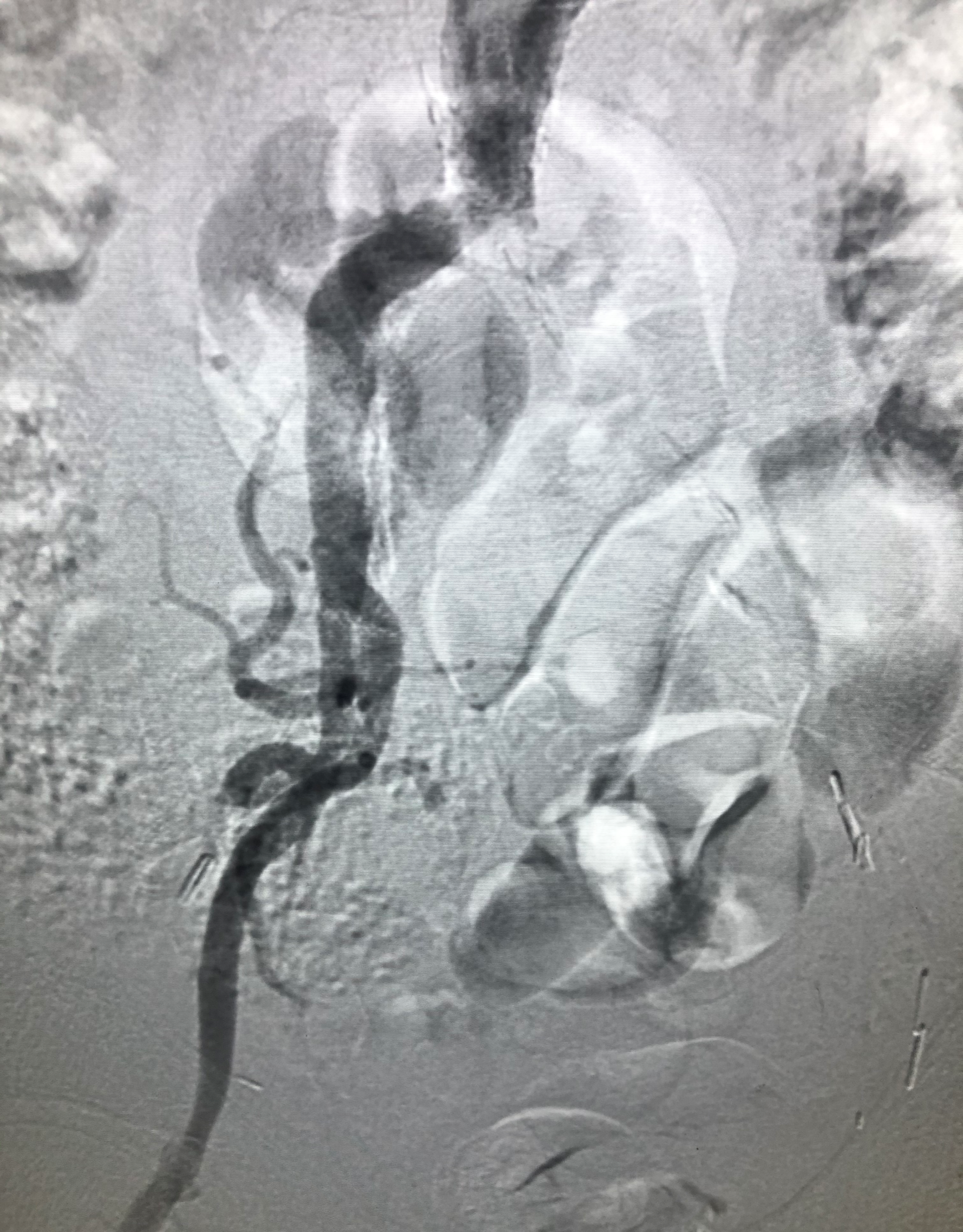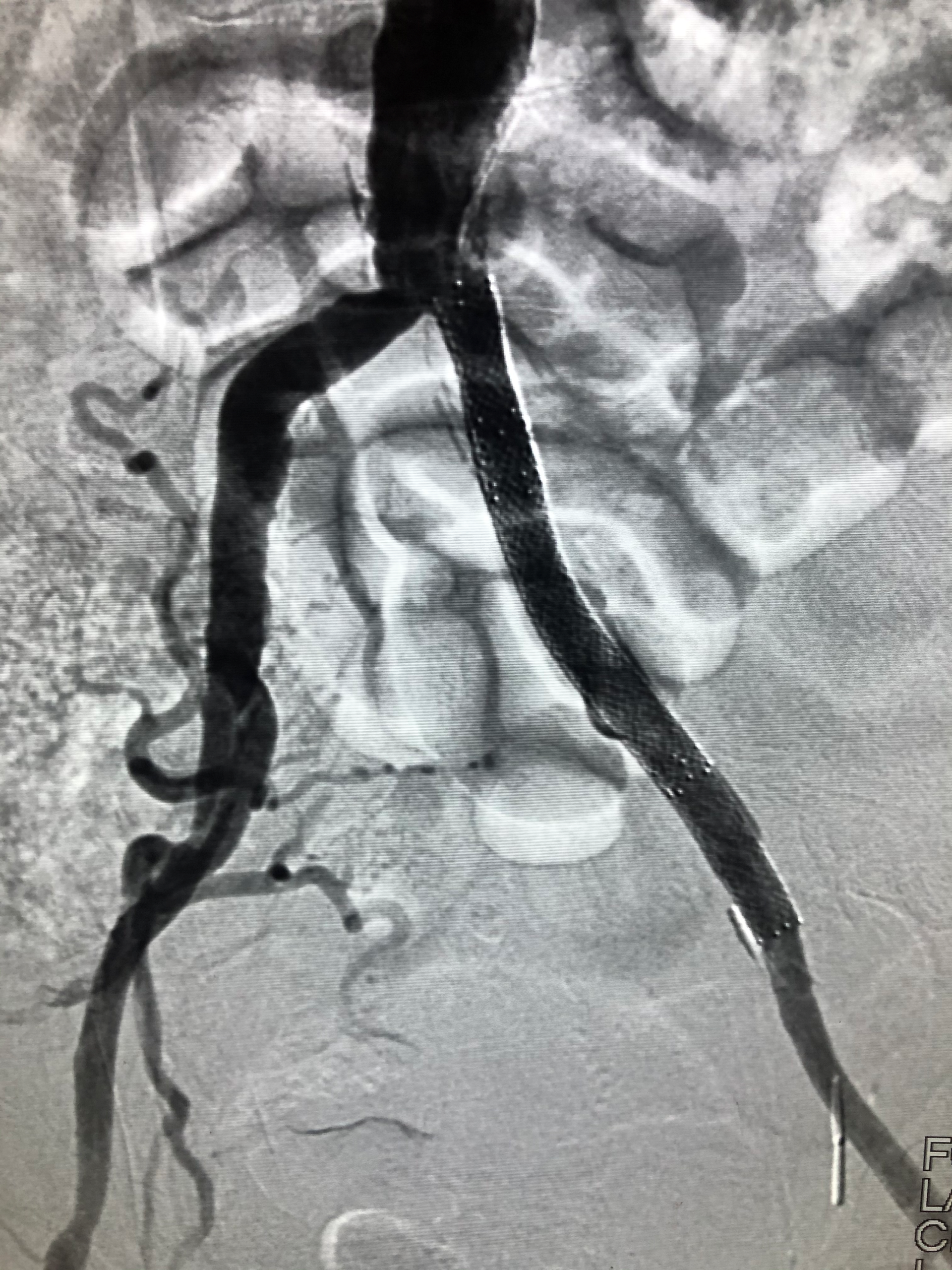Coronary and Peripheral Vascular Intervention
Coronary Intervention
Narrowings or blockages in the coronary arteries result in symptoms of angina (chest pain) and, in some cases, lead to myocardial infarction (heart attack). Once these blockages are identified with cardiac catheterization, the narrowings can often be treated using balloon angioplasty and, most commonly, with placement of one or more coronary stents. A stent is a tiny mesh tube that can be expanded at the site of a blockage to fully open the artery and restore normal blood flow to the heart muscle. Stents typically now are “drug-eluting” and the drug that diffuses into the vessel wall lowers the chance of re-narrowing (“restenosis”) to less than 5%. In some cases, the atherosclerotic plaque causing the blockage may be highly calcified and it is necessary to modify the plaque before placing a stent using a rotational atherectomy device. Patients can often be discharged home the same day or the day after such procedures. OHVI cardiologists are highly trained and experienced in the latest coronary interventional techniques allowing them to treat even highly complex blockages with good results.


Peripheral Vascular Intervention
Blockages due to atherosclerotic plaque are not limited to the heart! Many patients develop symptoms related to blockages in leg arteries, renal arteries and carotid arteries which can lead to pain with walking (“claudication”), hypertension and/or kidney failure, and cerebrovascular accidents (stroke). OHVI cardiologists are experts at treating blockages literally from head to toe using a wide variety of atherectomy (plaque removal) devices, balloon angioplasty catheters, and stents specially designed for peripheral vascular applications. Such procedures often allow patients to avoid major surgery. OHVI physicians are at the forefront of this field and have been involved in numerous clinical trials of atherectomy devices for use in leg arteries including Diamondback rotational atherectomy, SilverHawk directional atherectomy, Eximo laser atherectomy and numerous specialized balloon angioplasty catheters and stents. Dr. Weinstock also has been an investigator for several carotid stent trials, as well, a procedure that offers an alternative for many patients with severe carotid artery blockages who prefer to avoid carotid endarterectomy (surgery).
To learn more about peripheral vascular disease, click to visit http://www.pvdandme.com




